Imagine a world where everything is made with care and provenance; where every step, from insect-thriving pasture to beautifully crafted bag, nourishes the planet instead of polluting it. A world where making leather helps restore soil health, supports local craftspeople, and builds communities of farmers and designers creating food, fashion, and hope for a better way of living.
This vision drives British Pasture Leather, the enterprise founded by Alice Robinson and Sara Grady, that produces leather from regenerative farms. This October, they’ve partnered with a select group of British makers and studios for MADE WITH a limited-edition collection available exclusively online.
Grady, a regenerative food and farming advocate with over 20 years’ experience, has long worked to connect agriculture and ethics. After leading sustainability programmes in New York’s Hudson Valley, she moved to the UK to champion traceability and ecological integrity in the leather industry.
She explains: “We co-founded British Pasture Leather four years ago to create a supply of leather made from the hides of pasture-fed cattle in the UK. Sourcing from farms that follow regenerative principles, we’ve built a fully local supply chain now available to brands and designers producing accessories, interiors, and even shoes.”
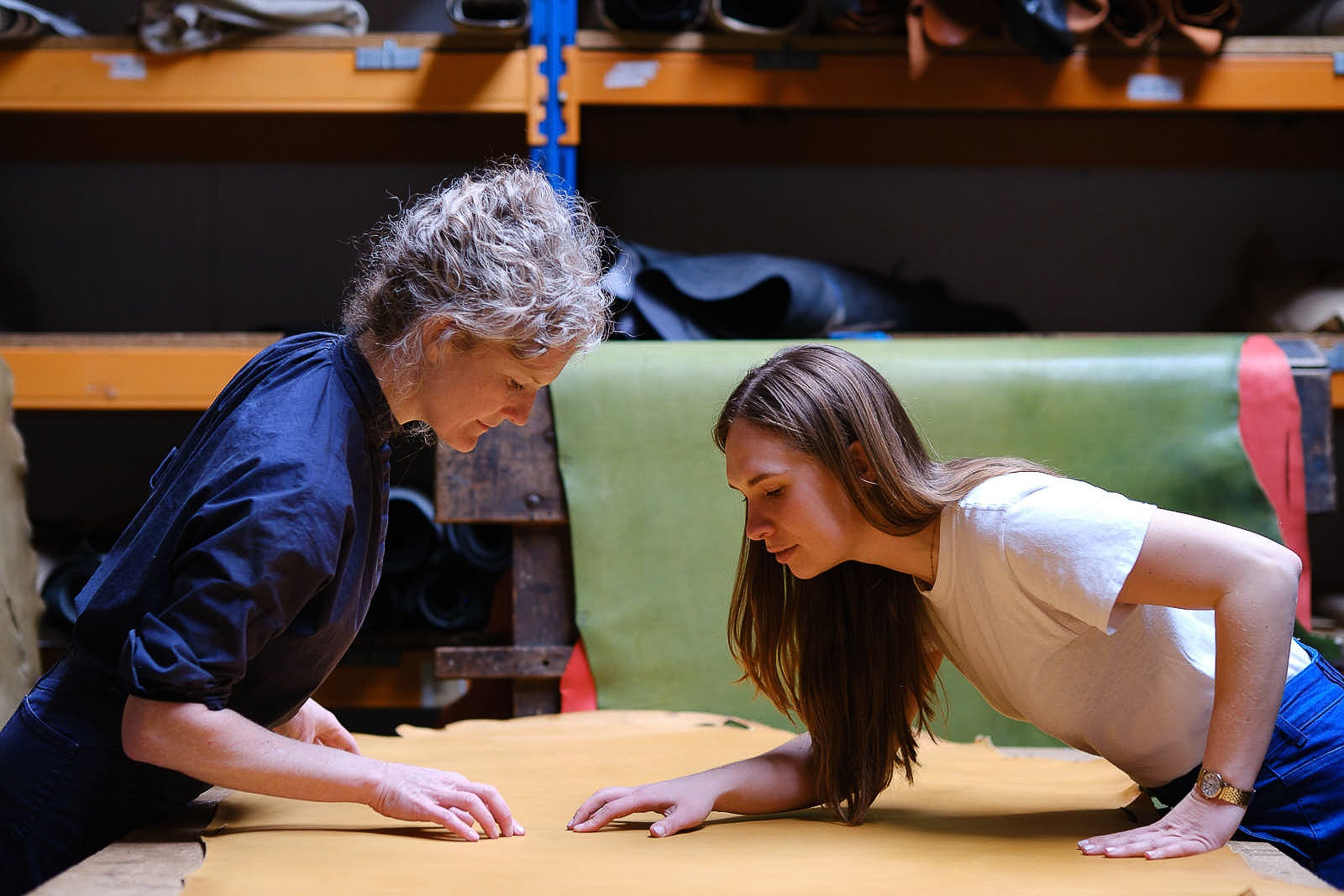
Robinson is a designer and researcher exploring the intersection of farming, fashion, and design. Her early farm-to-fashion project, made from a single cow on her family’s farm, demonstrated what a fully traceable, locally rooted supply chain could look like.
What Grady and Robinson are offering is a compelling alternative to conventional leather. The global leather industry currently relies on factory farming, toxic tanning chemicals, and untraceable supply chains that are harmful to both people and planet. Industrial tanning often uses chromium and other hazardous substances that pollute waterways and expose workers to toxic chemicals. It’s about as far away from nature as you can possibly get.
Robinson elaborates: “As a designer, you don’t have the choice to work with a material that has a connection to agriculture or a specific part of the food system that you wish to support. After my own collection, I found there really wasn’t a way to work with a similar type of leather that offered that provenance that opportunity to connect to landscapes and farming communities.”
Grady adds: “If we are raising animals for food, we should use all parts of those animals meaningfully. We put so much care into raising them thoughtfully, prioritising welfare and ecosystems and when transformed into leather, it’s the part that endures. I realised we don’t look at leather as an agricultural product, but we should be able to make that distinction and bring the same values we bring to our food choices.”
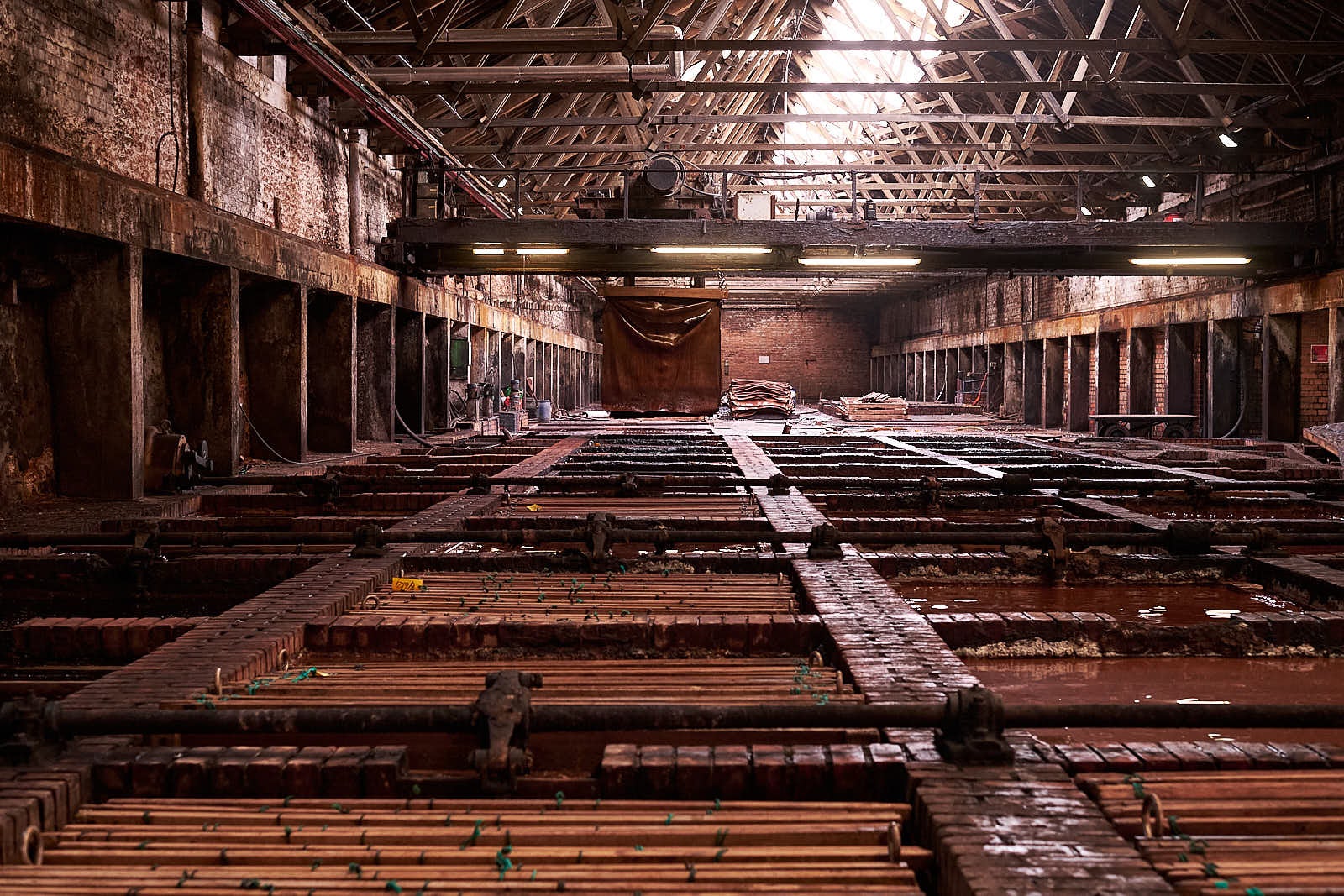
Britain once had hundreds of tanneries supporting regional economies but today only a small handful remain. Decades of cheap overseas production has decimated the industry. British Pasture Leather works with Thomas Ware & Sons Ltd in Bristol, one of three tanneries left that uses traditional vegetable tanning methods.
“Our production is entirely in the UK” Robinson clarifies. “When we began, we really wanted to see if we could produce 100 per cent vegetable-tanned leather, a lower-intervention process that results in a strong, beautiful material that can biodegrade without toxicity.”
Grady adds: “Vegetable tanning uses tannins derived from plants, leaves, barks, and fruits, rather than synthetic chemicals.”
A community of British makers
-20250901-rambler5695.jpg)
The MADE WITH collection spans bags, accessories, interiors, and craft items each made entirely with British Pasture Leather. Highlights include:
- Been London, the award-winning East London label known for its zero-waste design, with the Annis Sling Bag and Calvert XL Tote.
- Francli Craftwear, a Cornwall-based studio bringing functional craft to life with key holders, phone cases, and the Canvas Tool Bucket.
- Charles Laurie, masters of traditional leatherworking, producing luggage tags and wash bags.
- OTZI, specialists in furniture and joinery, with the Mesa Daybed and Camber Chair upholstered in British Pasture Leather.
- Risdon & Risdon, a Shropshire family workshop known for its canvas and leather aprons, adapting signature designs for this collection.
- Beorma, a Midlands accessories brand producing the Herringbone Belt, Ryland Tote, and Stamford Holdall.
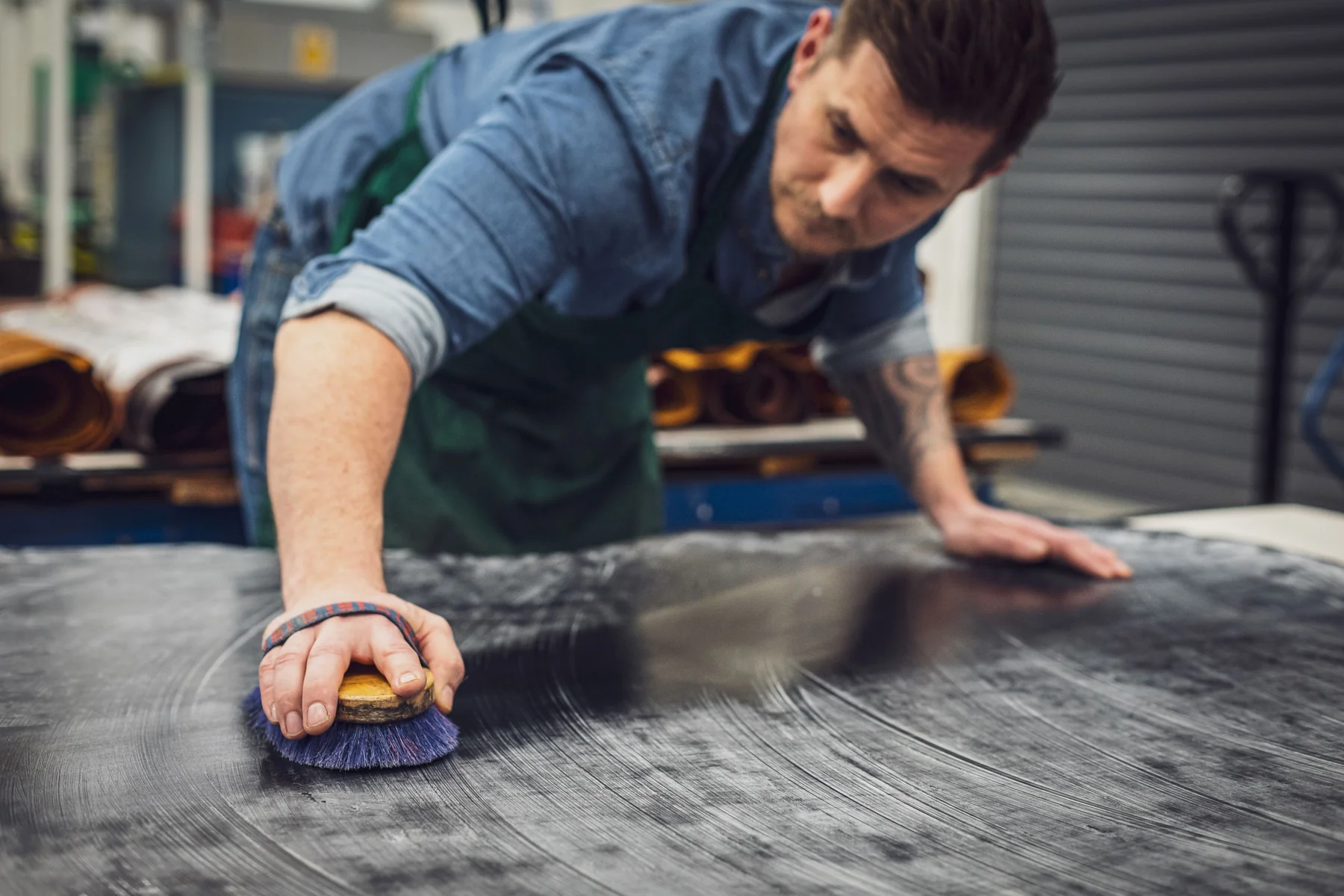
After a 15-year career in bomb disposal in the Middle East, Alex Simpson returned to the UK with his wife in 2022 as they prepared to welcome their first child. A few months later, his deep-rooted passion for working with leather led him to set up a small workshop and Beorma was born. He started talking to Grady and Robsinson a year ago. After a visit to the Beorma factory in Walsall and discovering their shared values, the partnership naturally grew, with Beorma beginning to use some of their leathers. When Grady and Robinson reached out about the MADE THIS collaboration, it was an easy decision. “We were honoured to get behind it,” he says.
“It’s beautiful leather both the material itself and the story behind it. We’re a British manufacturer and make everything in-house, so supporting UK production is important to us. The leathers we’ve used for the bags and belts are really beautiful, unique pieces.”
He adds: “There’s definitely a swing back toward supporting British manufacturing and understanding where and how things are made plus the regenerative side of it is huge. Customers care about the entire supply chain, and this one is truly special. We even ship a lot to Japan, where customers really value provenance.”
What excites him most, though, is the community: “There aren’t many companies left in the UK making leather goods. Walsall has been a saddlery hub for centuries, but much of that industry has been lost. We started Beorma to try and save jobs in one of the last remaining factories. What this project does is shine a light on the leather and on the makers across the UK creating beautiful things. It brings together people working in their own expertise to showcase this extraordinary material. I think that’s really special.”
Crafting with conscience
Ali Goodman, founder of Francli Craftwear, first discovered British Pasture Leather through a Groundswell panel talk on regenerative farming. “I was watching Sara on the panel and she spoke so eloquently, she says. “It’s such a complex subject, yet they communicate it so well. I was already working with leather mostly Italian vegetable-tanned hides but I felt uncomfortable not knowing where it was from.”
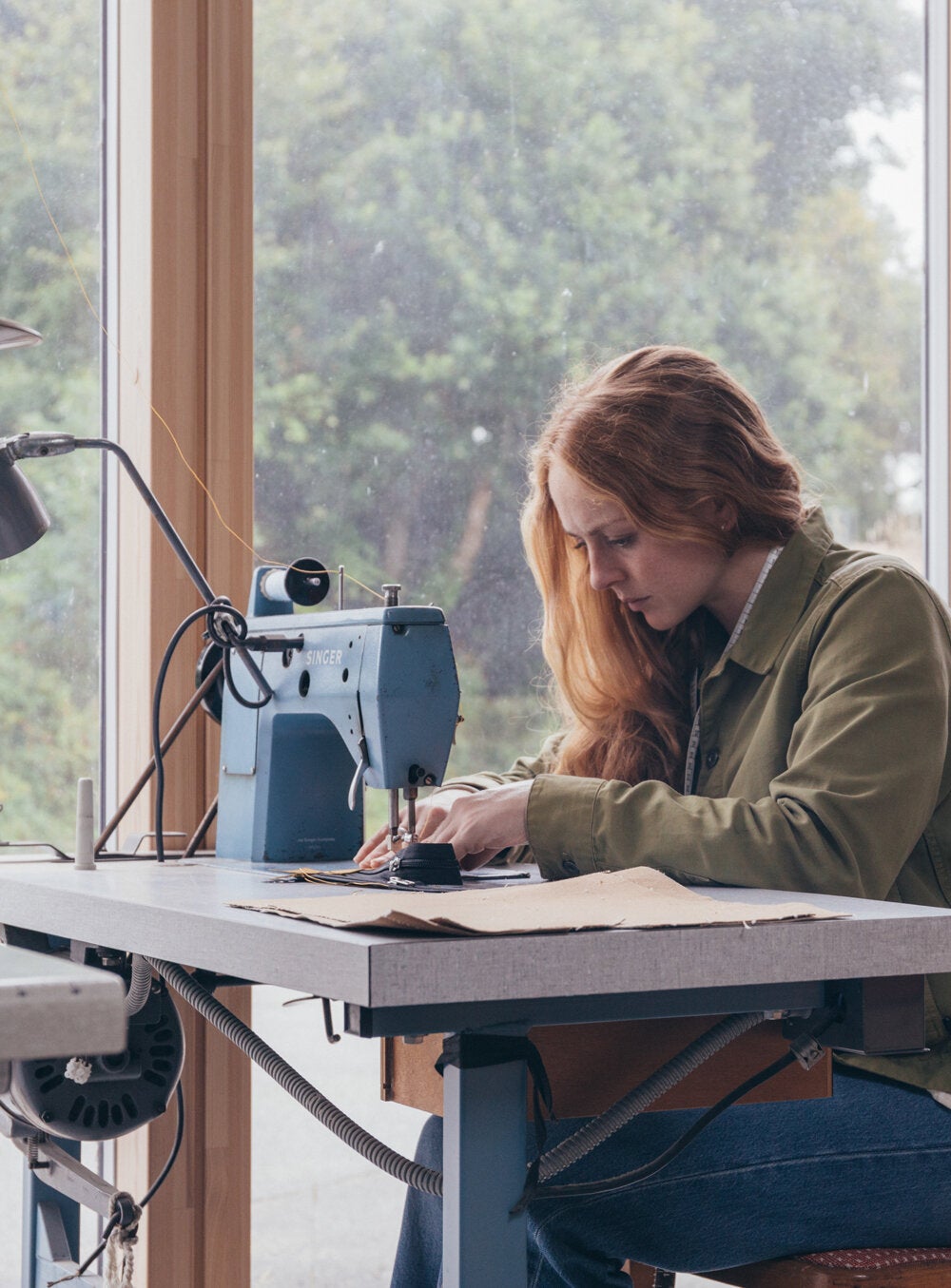
On designing for the collection, Goodman says: “When I got the leather samples, I chose designs that would let the leather do the talking keeping lines, seams, and stitching minimal. A lot of my work is material-led. I might start with an idea, but the shape depends on the material how it wants to fold, sit, and be interpreted. You get better, more timeless results that way. Their process resonates so much because it’s creating something that’s been offered from the soil, from process, by product, and then treating it with respect to where it’s come from. You naturally get a better product, their hides are a really special density and handle beautifully because the cows are healthier.”
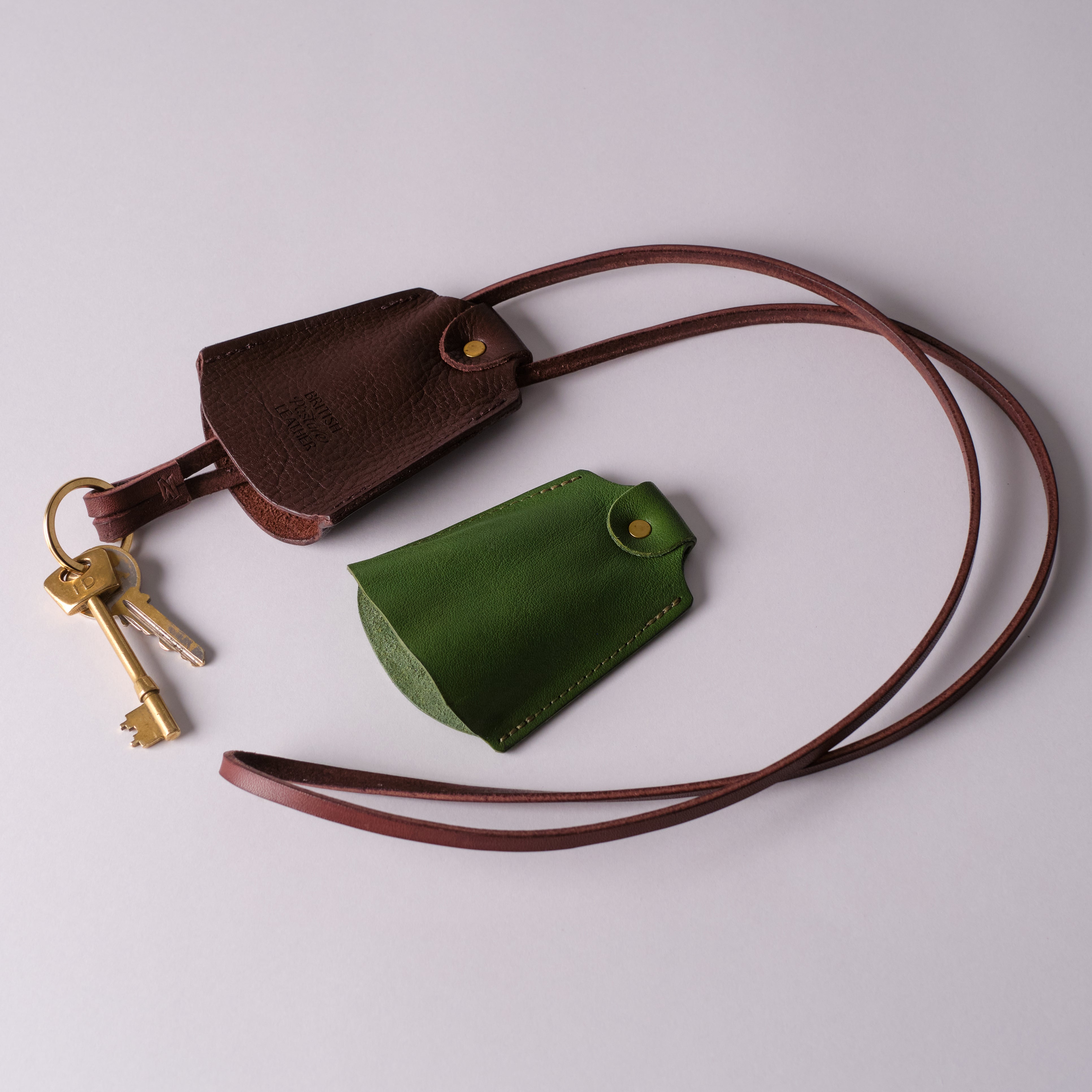
Farmers to fashion
We don’t often think of farmers when it comes to fashion, but they’re at the centre of the story. Ian Boyd, who has farmed for 55 years at Whittington Lodge Farm, embodies the regenerative principles behind British Pasture Leather.
He says: “On the journey to regenerative farming, I had to unlearn everything I’d learned through university and that’s quite a process.”
Boyd supports a return to regenerative farming: “British Pasture Leather is for people who care about animals, the environment, and the planet. It’s not about criticising conventional leather, but showing how it can be produced sustainably. Often, there are no alternatives to mass commodity production but here, there are.”
He explains how their story goes way beyond food; it’s about honouring the animal and environment: “We use as much as possible, selling beef direct to customers, the leather that Sara and Alice produce, offal, dripping, bone broth, everything. My goal has been to grow biodiversity and improve soil health. We can’t eat grass, so we need a beef herd to manage our habitats for biodiversity. We’re also net zero for carbon, so it’s about climate change too.”
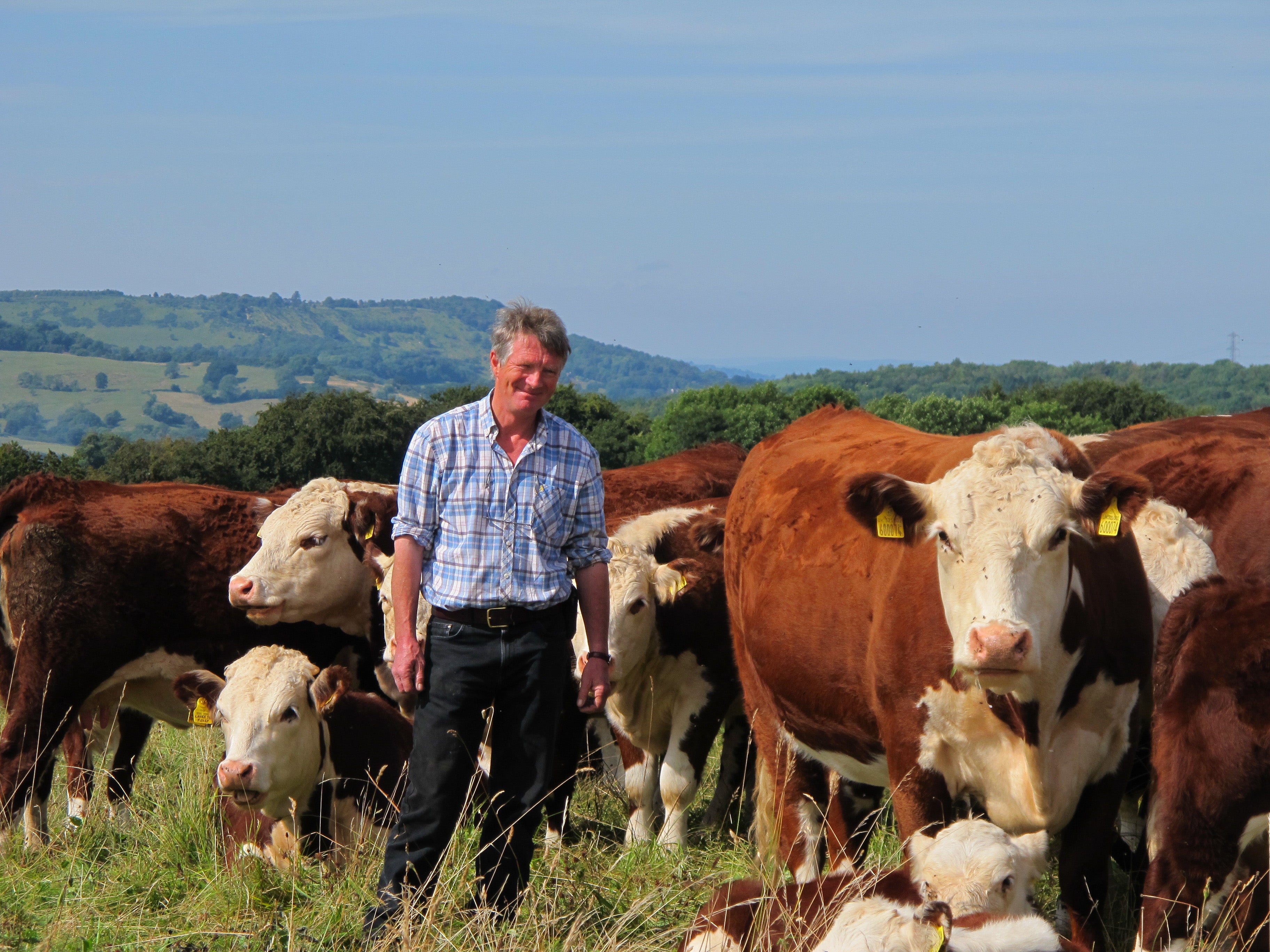
Producing leather from pasture-fed cattle helps share their story and that of all pasture-fed farms. Boyd says: “We want people to understand that farming can be an essential part of the solution to the biodiversity and climate crises. Farming can be absolutely brilliant, but it doesn’t always get the credit it deserves.”
Building a better system
British Pasture Leather’s work has been closely supported by Pasture for Life, a community of farmers across the British Isles championing regenerative practices. Chief executive Jimmy Woodrow has worked with Robinson and Grady since the beginning, helping to build the foundation for a more transparent, sustainable leather system.
“Pasture for Life is a community of farmers across the British Isles who are all working towards farming practices that benefit the environment, animals, and wider society,” he explains. “We focus on grazing animals eating a natural diet, only pasture, which contrasts sharply with much of the wider industry. We have a certification that verifies animals as 100 per cent pasture-fed. When I first met Sara and Alice, they were looking for partners to build this new leather supply chain in the UK. What attracted us was that our members were already interested, many were selling direct, experimenting in kitchen sink ways, and that interest was growing.”
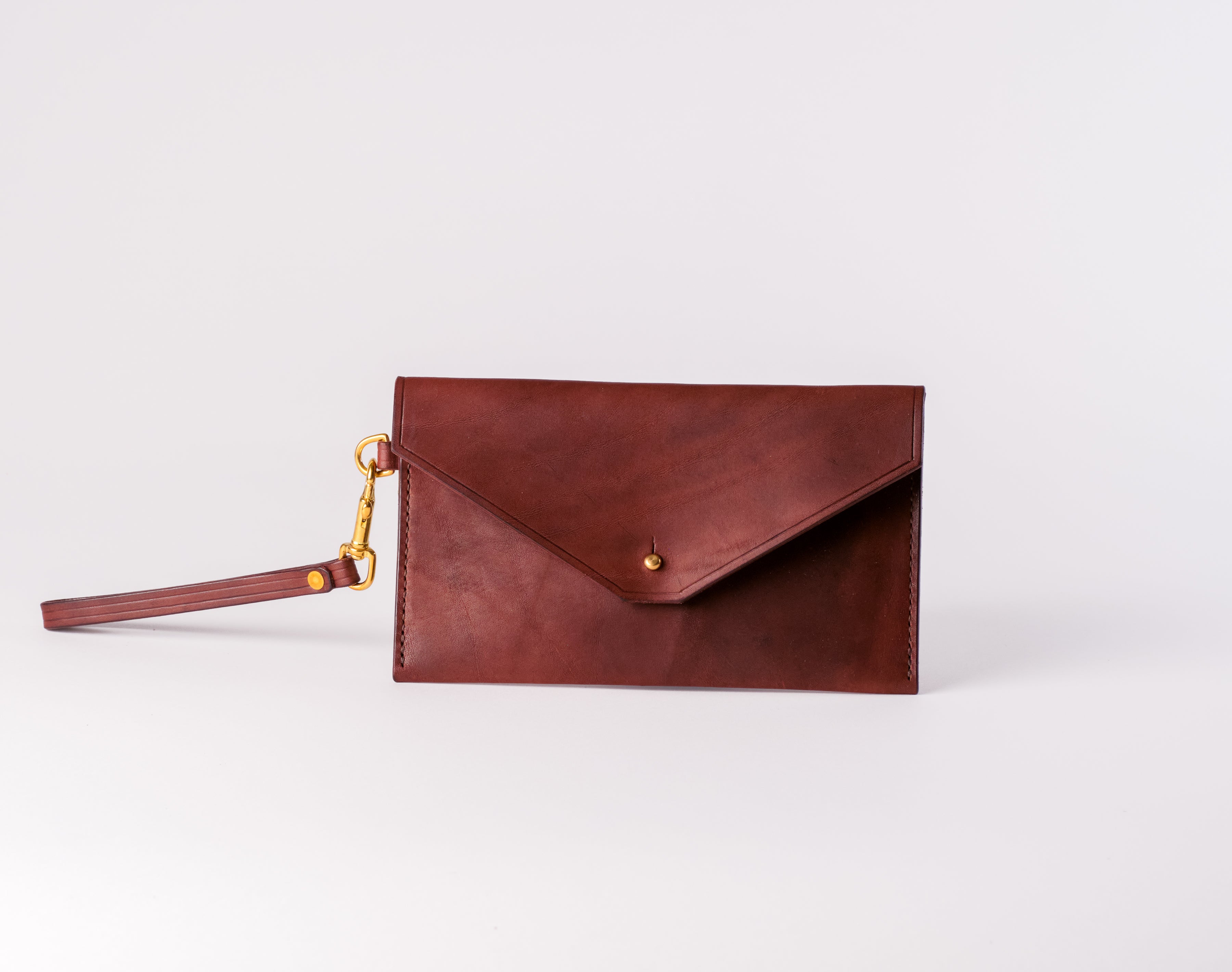
Woodrow is proud to celebrate the growing community. He says: “Everyone rolled up their sleeves to start something new, something countercultural given what’s happening in the mainstream leather markets. Over the last five years, we’ve all become friends and are really invested in each other’s success. I’ve met a few of the brands producing with their leather and there’s a clear thread between the farmers, entrepreneurial and innovative, and the brands creating these amazing products. It all feels very harmonious.”
It’s non-comparable to what the high street can offer in the way of sustainable fashion. Woodrow adds: “When we think about sustainability, there’s a big push in some quarters to remove animal products, but from our perspective, regeneration is literal these animals procreate naturally, without intervention. They create so many useful products; it’s an element of our consumer society we’ve lost. Everything else is virgin. There’s a lovely simplicity to these kinds of farming systems and the products they produce.”
A new kind of luxury
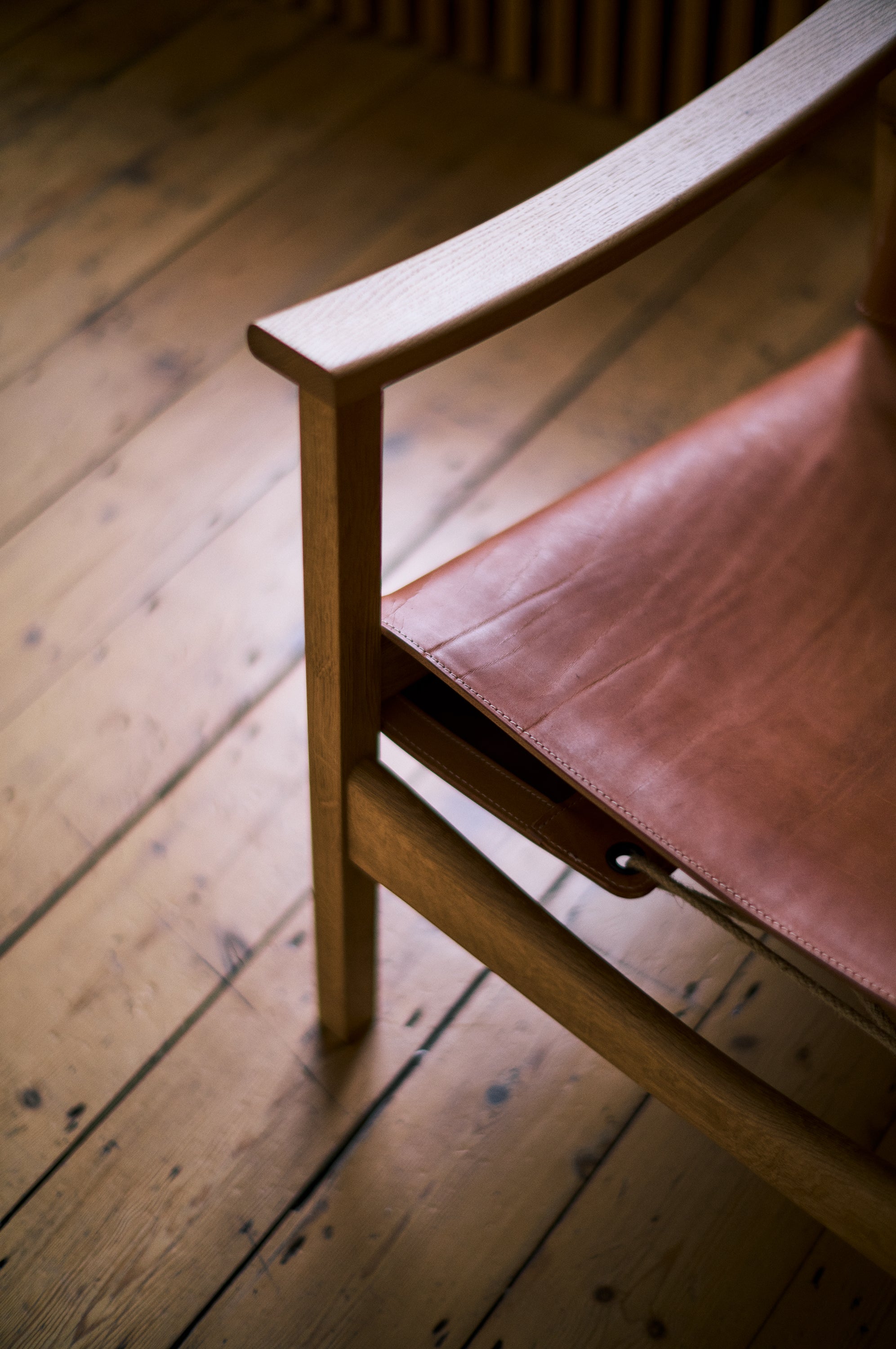
MADE WITH marks the first collaborative collection of its kind, one that redefines what luxury can mean when immersed in place, ecology, and purpose. Each studio has reimagined its work using the only leather in the UK made entirely from pasture-fed cattle raised on certified farms and tanned using traditional vegetable methods.
Grady says: “We’re readily available for any inquiries through the email address on our website or Instagram. It’s just the two of us, so if there are designers or makers interested in becoming acquainted with our leather, they can simply reach out, we’re always happy to connect. The ten studios we’re working with on this collection are ones we’ve come to know over the past few years, whose work we admire and who have been incredibly supportive.”
All orders in October are pre-orders, products are made in November and delivered in December.



0 Comments